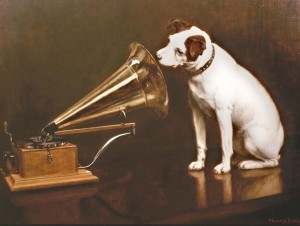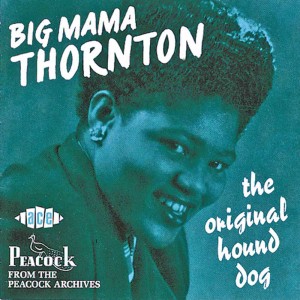Fiddlin’ Around – Sept/Oct 2015
Boy, we love our dogs, don’t we? My deaf, slightly doddering, small white fur ball of a dog took me to the beach tonight for sunset, and while we were sitting on a log contemplating important stuff I noticed the folks who looked the happiest were the ones with dogs. And there’s quite the assortment of these 4-legged critters here, from pocket sized yappy things to big brutes with studded harnesses. Much like this country in general—rich in variety. Which got me to wondering why so many songs about dogs are wicked sad, or they are about getting treated like a dog, or mean people say someone has a dogface. Like that’s a bad thing. We unabashedly love our own dogs’ faces and believe them to be beautiful. Like music, art, good food, a beautiful sunset and small children, they are one of our few universally shared joys. They can melt the most frozen of hearts. But there’s a long musical tradition of us tangling up our love for dogs with sadness and getting the blues.
Elvis Presley’s first major hit and biggest selling record ever was the song Hound Dog, and it has been at the center of disputes over authorship, royalties and copyrights ever since. The composers, (two young, white Jewish guys named Jerry Leiber and Mike Stoller), wrote it for a woman to sing and took it to Willie Mae ‘Big Mamma’ Thornton in 1952, and she recorded a sparse, bluesy, and somewhat angry version of the song, which became her only hit record. It was the tale of a woman who rejects her selfish, exploitative man—a biting satire full of sexual double entendres.
You ain’t nothin’ but a hound dog—quit snooping ‘round my door. You can wag your tail but I ain’t gonna feed you no more. You ain’t nothin’ but a hound dog—cryin’ all the time. Well, you ain’t never caught a rabbit and you ain’t no friend of mine. You ain’t nothin’ but a hound dog—you made me feel so blue you made me weep and moan. You ain’t looking for a woman—all you lookin’ for is a home.
Check out a YouTube video of Big Mama’s version—she even gets the band to all howl at the end! Apparently Elvis was well aware of her recording of the song, and admired it, although he changed it up in feel and lyrical content. Everyone tried to jump on the band wagon and it has been recorded over 250 times by folks as diverse as Pat Boone, The Mothers of Invention, Vanilla Fudge, Jimi Hendrix, John Lennon, Eric Clapton and Conway Twitty. They all put their spin on the song, some of them changing the lyrics or writing answer songs—a kind of parody of the original song. I still prefer Big Mama’s performance, though most of the artists who recorded it after Elvis used his version as a guide instead of hers.
Move It On Over is a 12 bar blues song written in 1947 by the great songwriter Hank Williams. It was his first hit song on the country charts, and has subsequently been recorded by folks like Ray Charles, George Thorogood, Bill Haley and even his son Hank Jr. in 1980. It’s got a bunch of verses, is full of innuendos, and tells the story of a guy who tries to sneak in his house late at night, only to have his angry wife make him sleep in the doghouse.
I came in last night about half-past 10—that baby of mine wouldn’t let me in! So move it on over, rock it on over—move over little dog a mean ‘ole dog is moving in. She changed the lock on our front door—now my door key don’t fit no more. So get it on over, scoot it on over—scoot over skinny dog ‘cause the fat dog’s movin’ in. She threw me out just as pretty as she pleased—pretty soon I was scratchin’ fleas. Move it on over, slide it on over. Move over nice dog—a mean ‘ole dog is moving in. She warned me once she warned me twice—but I don’t take no one’s advice. So scratch it on over, so slide it on over—move over good dog cause a mad dog’s movin’ in. Move over cold dog cause the hot dog’s movin’ in.
Another great dog song.
The Louisiana bluesman, artist, multi-faceted and eccentric Coco Robicheaux recorded a song he had collaborated on with New Orleans bassist and writer, Spike Perkins, called Pit Bull for his fabulous cd Spiritland back in the mid ‘90s. Partially written because Spike liked pit bulls and thought they were a maligned breed and because Coco sometimes would leave his hoodoo dream world and show his keen sense of humor. I played with Coco for many years, and am proud to have played on this cut. It became a mini-anthem in our crazy New Orleans and I betcha there’s some young guy playing a club on Frenchman Street right now that has this song in his repertoire…
I’m the pit bull, I’m howlin’ for my baby I’m the pit bull, spoilin’ for the fight. Dogcatcher better beware of my bite. You know, I got a bad reputation, and it ain’t no joke. I play my music—I go for the throat. Don’t you mess with my woman, I won’t tell you twice, I don’t bark before I bite. You know I go down to the kennel, they all know my name. Gin and gunpowder, that’s the name of my game. I play my music, I knock ‘em dead—got the canine connection in the back of my head. You see it’s like I’s tellin’ ya baby, I’s built for battle long and low—my jaws lock up, why, they can’t let go. I might take your ears, I might take your nose—everybody yellin’ “Go man, go!”
Coco and Spike always thought it was kind of a silly song to put on such an introspective and spiritual cd, but it will probably end up being the most enduring of all.
Rufus Thomas was a Mississippi soul singer who recorded for the legendary Stax Records in Memphis. He did a bunch of novelty dance songs, like The Funky Chicken and Do the Penquin and was the father of R & B singer Carla Thomas. He was sort of known as the king of dog songs, as he penned Can Your Monkey Do the Dog, Somebody Stole My Dog, The Dog, Can’t Get Away From This Dog, Stop Kicking My Dog Around, and his biggest signature hit, Walking the Dog. His vocals on this song were powerfully gritty and the studio musicians, Booker T and the MG’s, set up an incredibly cool groove. He throws a bunch of children’s nursery rhymes into the song, and once again it has been recorded by a diverse bunch of artists, from Aerosmith to the Everly Brothers to the Rolling Stones in 1964. The Grateful Dead used to play it at their live shows—another dog song that is now part of our musical landscape, though the words are deceptively simple and kind of silly.
Baby’s back, dressed in black, silver buttons all down her back. High, low, tipsy toe, she broke a needle and she can’t sew. Walking the dog. Just walking the dog. If you don’t know how to do it, I’ll show you how to walk the dog. Asked a fellow for fifteen cents, see the fellow he jumped the fence. Jumped so high he touched the sky, never got back till the 4th of July. Walking the dog. Just walking the dog…
How about the song Mr. Bojangles by Jerry Jeff Walker?! Anyone who has loved a dog and outlived them can relate to his incredibly lonesome and sad lyrics.
He spoke with tears for 15 years, how his dog and him traveled about. His dog up and died—he up and died, and after 20 years he still grieves.
Blues guys have lots of dog songs. Old Blue is a song about the dog that tracks down escaped prisoners, as is Robert Johnson’s song Hellhound on My Trail. Dr. John wrote a hilarious but menacing song, How Come My Dog Don’t Bark When He Comes Round?, questioning why his dog, who usually bites everyone including the mailman he sees every day, never barks at one particular guy. Pretty sure the guy has been regularly visiting his wife while he’s away. The great bluesman Lightnin’ Hopkins wrote Lonesome Dog Blues and even the bluegrass guys Lester Flatt and Earl Scruggs chimed in with Old Salty Dog Blues. Johnny Cash gave us Dirty ‘Ol Egg Sucking Dog and Buck Owens told us The Sun Don’t Shine On the Same Dog Every Day, whatever that means…
 Many people think of a dog’s howl as a canine attempt to make music, as they often join in with people playing instruments or singing. Native Americans used to call coyotes “song dogs” and the internet is full of clips of someone’s dog howling along to Uncle Fred’s accordion playing. ‘Course maybe the dog is just trying to drown him out. In wild dogs, howling is a communication that might indicate loneliness in an isolated dog, or more probably it is done to assemble the pack and re-acquaint everyone. It usually starts higher in pitch than it ends up, and dogs seem to try to avoid howling in the same register as other voices. A concept that many lead singers don’t get! Dogs are more likely to howl along to wind instruments, particularly clarinets or saxophones. Long notes played on the violin or even sung make them nuts. See, another universally shared truth!
Many people think of a dog’s howl as a canine attempt to make music, as they often join in with people playing instruments or singing. Native Americans used to call coyotes “song dogs” and the internet is full of clips of someone’s dog howling along to Uncle Fred’s accordion playing. ‘Course maybe the dog is just trying to drown him out. In wild dogs, howling is a communication that might indicate loneliness in an isolated dog, or more probably it is done to assemble the pack and re-acquaint everyone. It usually starts higher in pitch than it ends up, and dogs seem to try to avoid howling in the same register as other voices. A concept that many lead singers don’t get! Dogs are more likely to howl along to wind instruments, particularly clarinets or saxophones. Long notes played on the violin or even sung make them nuts. See, another universally shared truth!
There are great folks in our area who help keep the dog population healthy by providing foster care and low-cost neutering services – the DAWG folks in Dominical (Domestic Animal Welfare Group) and the PAWS people in Quepos (Pets of Aguirre Welfare Shelter) can always use help paying the bills and finding homes for their rescue animals. All the musicians I know around here donate their time and talents at their fundraisers, so if you love dogs, throw some energy or money their way.
Thanks for coming out and supporting live music in our area—there are many fine musicians around here, although our number has sadly been diminished by the passing of harmonica player Lance Bennett. He will be very much missed by his fellow musicians, family, friends and fans. Our love to his wife Letty—excellent bassist and singer—most of us around here have enjoyed many hours of music from their capable hands. Ben Jammin’ and the Howlers play most every Friday night in Dominical at the beautiful Roca Verde Bar and Restaurant—come on down south and have some fun with us!
 The better I get to know men, the more I find myself loving dogs. Charles de Gaulle
The better I get to know men, the more I find myself loving dogs. Charles de Gaulle
Heaven goes by favor. If it went by merit, you would stay out and your dog would go in. Mark Twain
Don’t accept your dog’s admiration as conclusive evidence that you are wonderful. Ann Landers
Where there are dogs and music, people have a good time. Emmylou Harris

